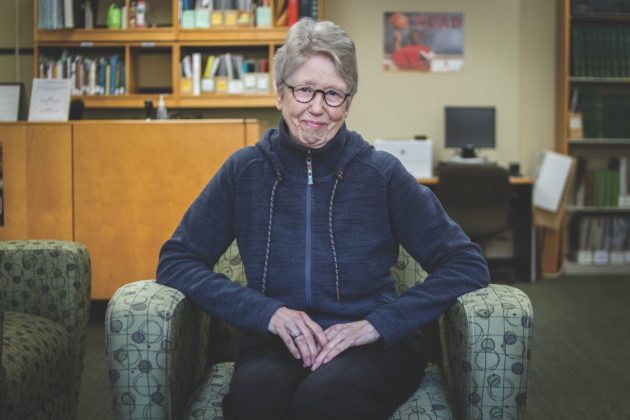Applications are currently closed for this program. We hope to open applications for additional cohorts in the future.
The Sharon Dunwoody Science Journalism Mentoring Program is a free, nine-month mentoring program aimed at increasing the diversity of voices covering science and supporting journalists who are from underrepresented communities or who have experienced higher than average barriers to entry to the field. During the course of this program, each participant will be paired with a paid mentor as part of an individually tailored learning program aimed at providing the skills and community support to help them do their best work in covering science. This program will offer participants the opportunity to explore their career interests, challenges, and passions and to sharpen their skills as part of a talented, supportive, diverse community of mentees and mentors. This mentoring program is made possible at no cost to participants through the generous support of the Simons Foundation and the Chan Zuckerberg Initiative. The program is managed by Sandeep Ravindran, an experienced science journalist based in Bethesda, Maryland (see contact information below).
More Details about the Mentoring Experience
During this program, each participant will work towards a concrete, actionable goal that they set at the start of the mentoring program, whether that is pitching or writing a defined number of articles for publication, or learning and gaining experience in a new skill such as interviewing scientists, podcasting, data journalism, or something else. (It’s fine if goals shift over the period of the program.)
Participants will have weekly phone or video meetings with a mentor who is an experienced science journalist and who will help them work toward their goals—for example, by helping shape story ideas, providing reporting and writing guidance, and offering general craft and career-development advice and guidance.
Program participants and mentors will also have the opportunity to take part in a Slack discussion group and attend webinars and virtual events featuring working science journalists. Membership in the Slack community will continue after the formal mentoring program ends.
The weekly time commitment for the program will be variable, but in general participants can expect to spend about 3-5 hours a week in a combination of individual meetings with their mentors, working toward individual goals, and group discussions/activities.
The mentoring period is May 29, 2023—Feb 29, 2024. There is no cost to participate.
Eligibility
- The goal of the Sharon Dunwoody Science Journalism Mentoring Program is to increase the diversity of voices covering science, and the program is particularly aimed at serving people who are from groups that have been historically underrepresented in science journalism or who have experienced higher than average barriers to entry to the field. This includes but is not restricted to people of color, LGBTQ+ people, people from the Global South, and people with disabilities.
- Applicants’ career goal or current occupation must involve covering science as a journalist.
- This program is designed for aspiring, early-career, and mid-career journalists from underrepresented communities.
- Students are eligible to apply, but the program is not intended for students who are currently enrolled (or have been accepted to enroll) in a journalism or science writing program.
- Graduate or postgraduate degrees in either science or journalism are not required. However, applicants are required to have some amount of training, experience, or demonstrated enthusiasm for writing about science for the general public.
- International applicants are welcome. We encourage you to apply even if English is not your native language, but some level of conversational English proficiency is required, and the success of your application may depend on our ability to find a suitable mentor with the same native language.
- Applications must be in English. Materials translated into English from another language are acceptable.
Required Application Materials
The application form for the mentoring program includes the following:
- Responses to questions about:
- Your current professional role, interests, and career goals
- Your prior training, experiences, or demonstrated interest in writing stories about science for the public
- Your goals for this mentoring program
- Aspects of your background and/or the communities you belong to that might make you a particularly good fit for this program, given the program’s goal of increasing the diversity of voices covering science.
- The name, phone number, and email address for someone who can serve as a reference for you if needed. This can be from a professor, editor, mentor, supervisor, or other colleague—whoever you think can best speak to your skills and qualities as they relate to science journalism and to this mentoring experience.
- Your resume or CV
- One writing or multimedia sample of work demonstrating your interest or experience in writing about science for the general public. This should be a sample of work intended for the public, not scientific/academic writing. If you are sharing audio or multimedia clips, you can simply put the URLs for the work into a PDF to upload in this section. (Samples must be in English. Translated materials are acceptable.)
How to Apply
Applications are currently closed for this program. (We are recruiting mentors through April 7, 2023.) We hope to open applications for additional cohorts in the future.
Questions?
If you have any questions, please email TON program manager Sandeep Ravindran: sandeepravindran@theopennotebook.com.
About Sharon Dunwoody



